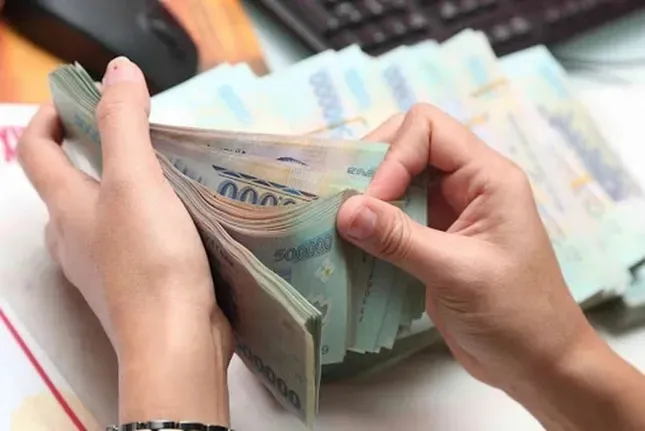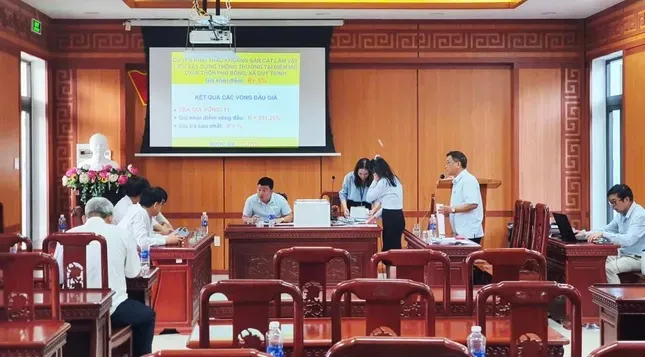Prime Minister Pham Minh Chinh Answers WEF President’s ‘Hot’ Question
On June 25th, Prime Minister Pham Minh Chinh participated in a policy dialogue, “Vietnam’s New Era: From Vision to Action,” as part of the 16th Annual Meeting of the Pioneers of the World Economic Forum (WEF Tianjin). The session was moderated by Mr. Borge Brende, President of WEF.
Mr. Borge Brende commended Vietnam as a rapidly growing economy, a rarity in the current global economic landscape. While the world economic growth is expected to slow to around 2.5% this year, Vietnam still aims for a growth rate of 7-8%.
“What is the secret to Vietnam’s economic success, and how can it sustain this growth without falling into complacency?” Mr. Brende asked Prime Minister Pham Minh Chinh.

Prime Minister Pham Minh Chinh in dialogue with WEF President Borge Brende. Photo: VGP.
The leader of the Vietnamese government shared that despite the evident global growth slowdown, Vietnam remains committed to achieving an 8% growth rate this year and maintaining double-digit growth in the coming years to become a high-income developed country by 2045. This ambitious goal demands tremendous effort and presents challenges in the current context, but Vietnam possesses the foundations to make it happen.
“It stems from our belief in our development path, a stable political system, our past economic achievements, and international support, including 17 FTAs with major markets and partners,” shared the Vietnamese leader.
According to Prime Minister Pham Minh Chinh, Vietnam has extensive experience in facing and overcoming crises and risks in recent years. He believes that these foundations will enable Vietnam to achieve higher growth rates this year and in the years to come.
Prime Minister Pham Minh Chinh also mentioned Vietnam’s ongoing efforts to diversify its markets, products, supply chains, and production chains to adapt to changing circumstances. Vietnam is successfully maintaining a balanced approach in its relations with different partners, without becoming complacent, and always remaining calm, persistent, and steadfast, without panic or fear.
New Minimum Wage Rates Effective from July 1st
Decree No. 128/2025 of the Government, effective from July 1st, stipulates the decentralization of state management authority in the field of home affairs, including provisions on minimum wage rates.
The current regional minimum wage rates are stipulated in Decree No. 74/2024 of the Government, which sets the minimum wage for employees working under an employment contract.

From July 1st, 2025, the determination of the minimum wage by district will transition to a determination based on the new commune-level administrative units. Illustrative image.
Specifically, the current minimum monthly wage rates are: Region I – 4.96 million VND, Region II – 4.41 million VND, Region III – 3.86 million VND, and Region IV – 3.45 million VND.
The corresponding minimum hourly wage rates are: Region I – 23,800 VND, Region II – 21,200 VND, Region III – 18,600 VND, and Region IV – 16,600 VND.
In cases where the new wage rates are lower than the previously applied rates (before July 1st), employers shall continue to apply the minimum wage rates according to the district-level administrative units prior to July 1st. This will remain in effect until the Government issues new regulations.
Confronting Inequities and Unfairness in Personal Income Tax
Many salaried employees find themselves in a similar situation, earning just enough to get by but still having to pay personal income tax. This has come as a surprise to many, as personal income tax revenue for the first quarter of this year exceeded 70 trillion VND, equivalent to nearly 39% of the annual plan and an increase of over 25% compared to the same period last year. Citizens have expressed their hopes for a comprehensive revision of the Personal Income Tax Law.

The 2024 Cost of Living Index by Region (SCOLI) published by the Statistics Bureau showed that Hanoi continued to top the list as the most expensive city in the country.
In an interview with Tien Phong newspaper, Dr. Nguyen Ngoc Tu, a lecturer at the Hanoi University of Business and Technology, emphasized that personal income tax currently contributes nearly 10% of state budget revenue, mainly from salaried employees who do not engage in business activities and cannot “avoid taxes.” In contrast, 3.6 million business households in 2024 contributed less than 26 trillion VND, or about 1.5% of the budget, including value-added tax, which is a tax levied on consumers rather than a direct income tax.
“This reveals the inequity and unfairness in the distribution of tax obligations among different groups. Personal income tax needs to be adjusted to reduce the unreasonable burden on salaried employees. Their specific circumstances should be taken into account, and tax policies should encourage them to strive and contribute. This is the right approach, both humane and effective, and it deserves special attention in the upcoming revision of the Personal Income Tax Law,” said Mr. Tu.
Recently, Deputy Prime Minister Ho Duc Phoc announced that the draft Law on Personal Income Tax (amended) will be submitted to the National Assembly at the October session this year.
Surprising Bid for a Sand Mine in Quang Nam: From 1.8 Billion to Over 138 Billion VND
On June 25th, the People’s Committee of Duy Xuyen District and the Hoa Thuan Auction Company organized an auction for the mining rights of a construction mineral resource at the DX6B sand mine (Phu Bong village, Duy Trinh commune, Duy Xuyen district, Quang Nam province).
After 11 rounds of bidding, Hân Hiền Hậu Trading Services Co., Ltd., located in My An village (Dai Quang commune, Dai Loc district, Quang Nam province), won the auction for mining rights at this site with a bid of over 138 billion VND, 76 times higher than the starting price.

DX6B sand mine has a reserve of nearly 197,000 cubic meters, with a starting price of over 1.8 billion VND, and was finally bid at over 138 billion VND by a business.
This winning bid is for the mining rights only and does not include other taxes and fees such as resource taxes, environmental protection fees, environmental restoration deposit, VAT, and corporate income tax.
With this bid, the value of mining rights per cubic meter of sand is over 700,000 VND.
How the War with Israel is Devastating Iran’s Economy
On June 13th, Israel unexpectedly launched airstrikes on Iran’s nuclear facilities, accusing Tehran of developing nuclear weapons. The continuous retaliation between the two sides has escalated the situation. On June 21st, the US officially joined, bombing three of Iran’s nuclear facilities, significantly increasing regional tensions.

A woman holding an Iranian flag during an anti-US and anti-Israel rally in Tehran, Iran. Photo: EPA.
Mr. Mahdi Ghodsi, an economist at the Vienna Institute for International Economic Studies, warned, “The impact of the war will be extremely severe on Iran’s economy, especially as the country has lost its resilience after 14 years of sanctions.”
Large cities like Tehran, Tabriz, and Isfahan are witnessing an exodus of residents. Economic activities have stalled, and employment has been disrupted on a large scale. Meanwhile, the closure of the Iranian stock market reflects the depth of the instability.
According to the International Monetary Fund (IMF), Iran’s economic growth is projected to stagnate at 0.3%, compared to the expected 3.5% this year. Inflation is also rising from 32.6% to 43.3% and is expected to remain high in the coming years.
Iran’s rial plummeted following Israel’s initial airstrikes. The government has had to implement capital controls and inject foreign currency into the market to maintain temporary stability. However, the black-market exchange rate still fluctuated around 92,250 rials per USD on June 23rd, according to Bonbast.com.
















